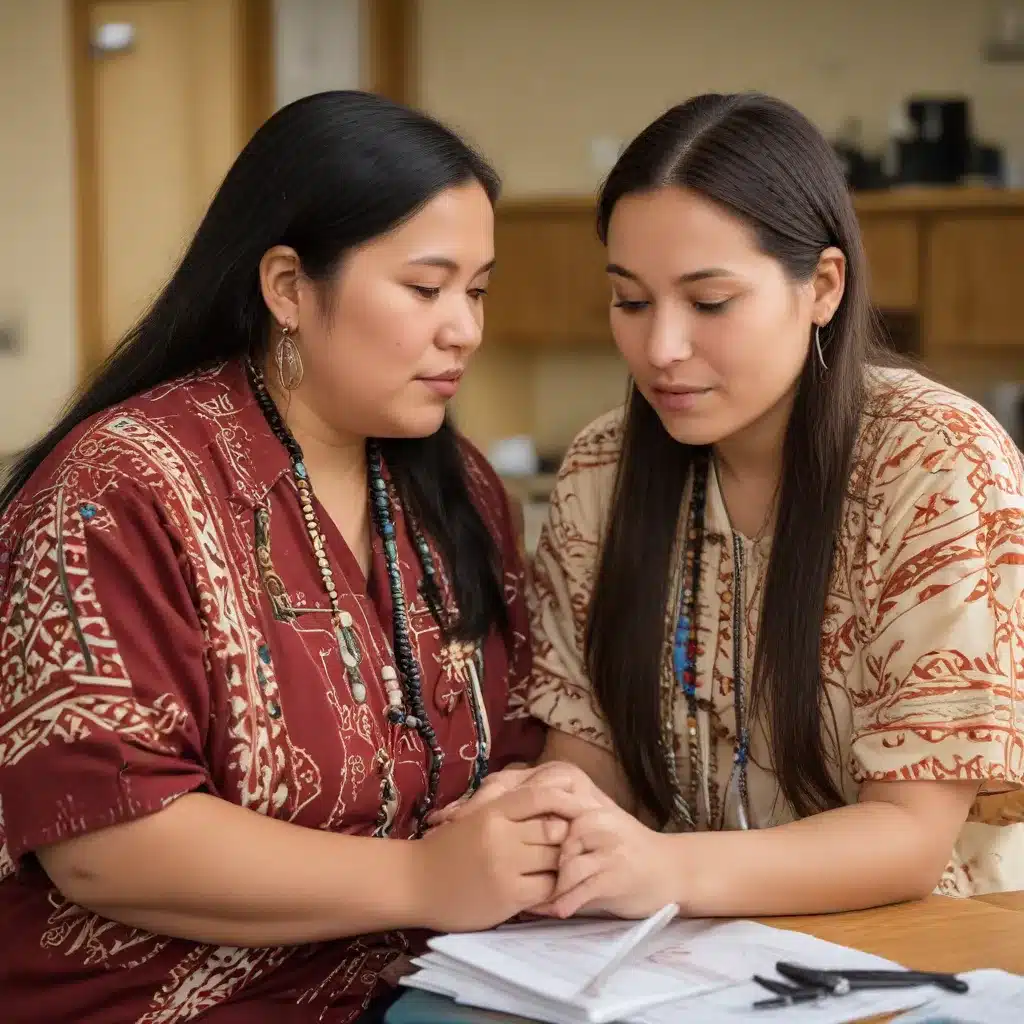
Addressing Mental Health Disparities in Rural Alaska through Community-Driven Initiatives
The Alaska Native Tribal Health Consortium (ANTHC) has long recognized the critical importance of holistic wellbeing for the overall health and prosperity of Alaska Native communities. Rooted in this understanding, the Behavioral Health Aide (BHA) Program has emerged as a groundbreaking initiative to address the pressing mental health and substance use challenges faced by rural Alaskans.
A Holistic Approach to Behavioral Health
The BHA Program is built upon the premise that physical, mental, emotional, and social health are intrinsically connected. “Good physical health is important to a healthy, happy life. Mental, emotional and social health and wellbeing are equally vital, yet often ignored or misunderstood,” states the ANTHC. By adopting a comprehensive, culturally-relevant approach, the program empowers village-based counselors to support their communities in navigating a wide range of behavioral health concerns.
Bridging the Gap in Rural Care
Behavioral Health Aides (BHAs) are uniquely positioned to address the unique needs of their communities. As trusted members of the local population, BHAs possess an intimate understanding of cultural traditions, social dynamics, and the specific challenges faced by their fellow villagers. This intimate connection allows BHAs to provide services that are seamlessly integrated into the fabric of community life, breaking down barriers to accessing care.
“Being located in the community means that the BHA is familiar with the local culture and traditions and can provide services using a combination of traditional and Western models of care,” the ANTHC explains. By combining traditional healing practices with evidence-based Western approaches, BHAs are able to deliver holistic support that resonates with their clients on a deep level.
Building a Robust BHA Workforce
To ensure the BHA Program’s long-term success, the ANTHC has established the Behavioral Health Aide Training Center (BHA-TC). This specialized training hub is authorized by the Community Health Aide Program Certification Board (CHAPCB) to provide comprehensive, competency-based instruction to aspiring and existing BHAs.
The BHA-TC’s curriculum is designed to cultivate a well-rounded workforce capable of addressing a wide range of behavioral health concerns. Courses cover topics such as understanding and assessing mental health and substance use issues, applying holistic wellness approaches, and developing practical skills for providing quality services within the BHA scope of practice.
“The curriculum teaches BHA/Ps to understand, assess and address mental health and substance use concerns using a holistic approach to health and wellbeing,” the ANTHC explains. By emphasizing both theoretical knowledge and hands-on competencies, the training program produces BHAs who are prepared to make a tangible impact in their communities.
Empowering Village-Based Counselors
The BHA Program recognizes that the most effective behavioral health solutions emerge from within the communities themselves. To this end, the program supports Tribal Health Organizations (THOs) in implementing the BHA initiative in a way that aligns with their unique needs and priorities.
BHAs are employed directly by these regional THOs, ensuring that the services they provide are tailored to the specific challenges faced by local populations. The scope of practice for BHAs can vary widely, encompassing a range of services such as:
- Providing individual, family, and group counseling
- Facilitating community-based prevention and education programs
- Connecting clients to higher levels of care when necessary
- Offering aftercare support to ensure continuity of treatment
- Advocating for behavioral health resources and policy changes
By empowering village-based counselors to lead the charge, the BHA Program harnesses the inherent strengths and resilience of Alaska Native communities.
Fostering Cultural Connections and Reducing Stigma
A cornerstone of the BHA Program’s approach is the integration of traditional healing practices and cultural values. BHAs are trained to approach behavioral health through a lens of holistic wellness, drawing upon the rich tapestry of Alaska Native traditions to provide comfort, guidance, and a sense of community.
“Using a holistic approach to wellbeing, BHAs apply their knowledge, skills and training to address the unique social and cultural needs of their communities,” the ANTHC explains. This culturally-grounded approach not only resonates with clients but also helps to reduce the stigma often associated with seeking mental health support.
By building trusted relationships and creating safe spaces for open dialogue, BHAs are instrumental in normalizing conversations around behavioral health. Through education and outreach, they increase awareness and connect community members with the resources they need to thrive.
Driving Positive Change through Collaboration
The success of the BHA Program hinges on the strong partnerships and collaborative efforts that underpin its implementation. The ANTHC works closely with Tribal Behavioral Health Directors, regional THOs, and other key stakeholders to ensure the program’s reach and impact continue to grow.
Together, these partners identify community-specific needs, develop tailored training and support resources, and advocate for policy changes that expand access to behavioral health services in rural Alaska. By fostering this collaborative spirit, the BHA Program harnesses the collective wisdom and expertise of Alaska Native communities to drive meaningful, lasting change.
Transforming Lives, Strengthening Communities
As the BHA Program continues to evolve and expand, it is having a profound impact on the lives of Alaska Natives. By empowering village-based counselors to address behavioral health challenges through a culturally-responsive lens, the program is helping to bridge the gap in mental health care access and improve overall wellbeing across rural communities.
“BHA/Ps are improving the health of Alaska Native people by reducing the stigma associated with seeking help for behavioral health problems,” the ANTHC reports. Through education, advocacy, and the provision of compassionate, community-driven services, BHAs are transforming lives and strengthening the social fabric of their communities.
The Joint Action for Water blog is proud to highlight the innovative work of the ANTHC’s Behavioral Health Aide Program. By sharing these inspiring stories of community-led initiatives, we hope to inspire others to follow in their footsteps and work towards a future where all people have access to the resources and support they need to thrive. To learn more, visit https://jointactionforwater.org/.

